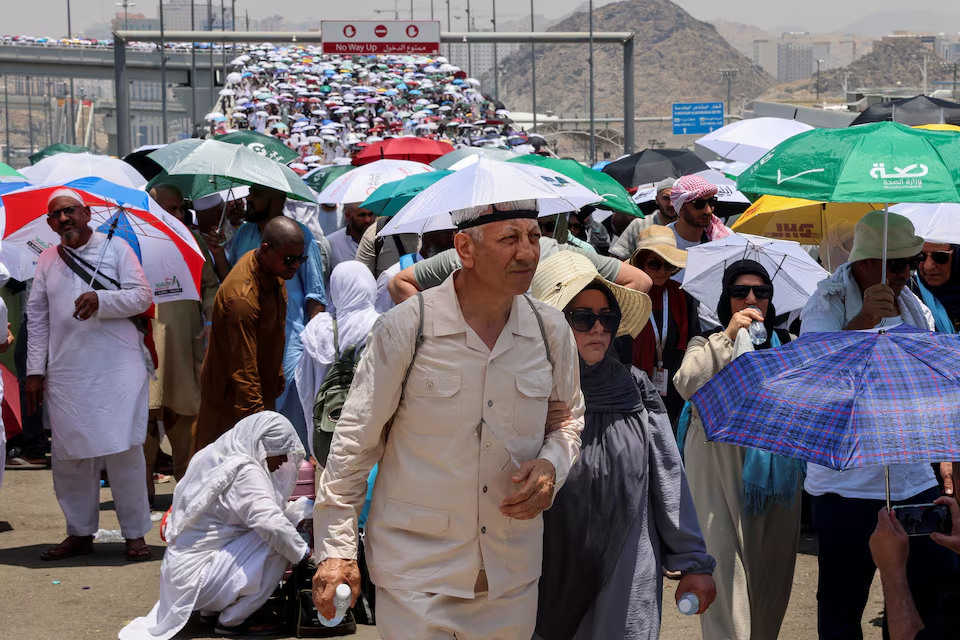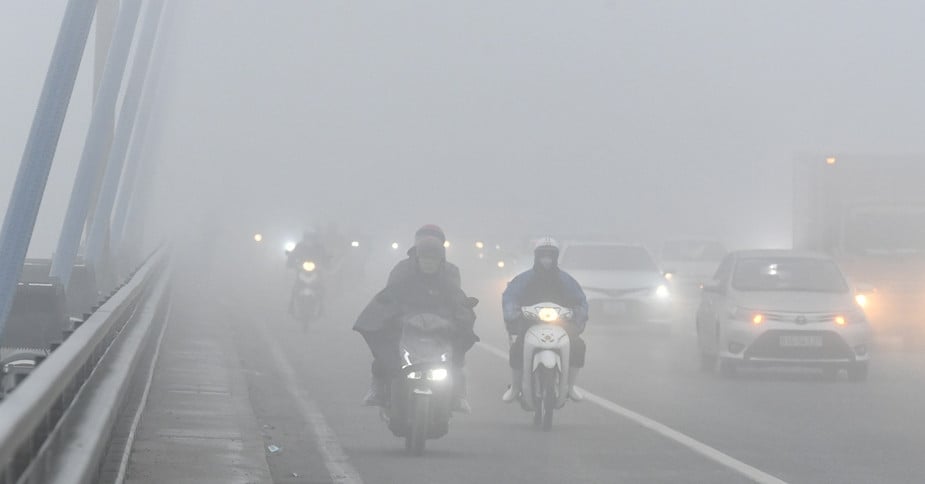How does climate change affect temperature?
As the continued burning of fossil fuels releases more carbon emissions into the atmosphere, the air can hold more heat from the Sun, causing average global temperatures to rise over time.

Muslim pilgrims walk amid extremely hot weather during the annual Hajj pilgrimage in Mina, Saudi Arabia, June 18. Photo: Reuters
The average global temperature has now risen nearly 1.3 degrees Celsius since the start of the first Industrial Revolution, when Western countries began burning coal and other fossil fuels.
That means climate change has made all heat waves hotter than they used to be. Overall, they are also becoming more frequent and more dangerous.
Any significant heatwave is “likely to be much more likely and much warmer than it would be due to human-caused climate change,” climate scientist Daniel Swain of the University of California, Los Angeles (UCLA) said earlier this month.
The impact of climate change on heat
To figure out exactly how climate change affects a particular heat wave, scientists have conducted hundreds of studies over the past decade, running computer simulations to compare today's weather systems with how they would behave if humans had not changed the chemical composition of the atmosphere over the past century.
For example, scientists at World Weather Attribution determined that a dangerous heatwave across South Asia in April was 45 times more likely due to climate change. During that heatwave, thermometers in the northeastern Indian city of Kolkata reached 46 degrees Celsius, 10 degrees above the seasonal average.
In addition to climate change, there are other factors and conditions that can influence heat waves. Climate phenomena such as El Nino or La Nina can have a major impact, along with regional circulation patterns.
Ground cover may also play a role, as dark surfaces and built environments tend to be hotter than reflective white surfaces or natural systems such as forests or wetlands.
What will happen in the future?
Even if we stopped adding carbon to the atmosphere today, the world would have already emitted enough to ensure that climate change would continue to push temperatures higher for decades.
According to scientists, the world must cut net emissions in half from 1995 levels by 2030, and to zero by 2050, to have a chance of keeping the global average temperature rise at around 1.5 degrees Celsius above pre-industrial levels.
Global emissions have been rising since 1995. The world is now on track to reach 2.7C by 2100, surpassing the 1.5C threshold that scientists predict would have catastrophic and irreversible climate impacts.
The world is suffering unprecedented heatwaves, reflecting the fact that the world has yet to address the worst of climate change, said Christiana Figueres, former head of the UN climate agency.
Ngoc Anh (according to Reuters)
Source: https://www.congluan.vn/bien-doi-khi-hau-gay-ra-nang-nong-nguy-hiem-tren-toan-the-gioi-nhu-the-nao-post300525.html









































Comment (0)